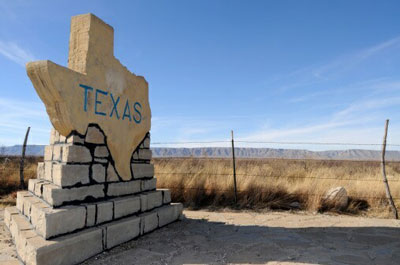- Advertising
- Bare Metal
- Bare Metal Cloud
- Benchmarks
- Big Data Benchmarks
- Big Data Experts Interviews
- Big Data Technologies
- Big Data Use Cases
- Big Data Week
- Cloud
- Data Lake as a Service
- Databases
- Dedicated Servers
- Disaster Recovery
- Features
- Fun
- GoTech World
- Hadoop
- Healthcare
- Industry Standards
- Insurance
- Linux
- News
- NoSQL
- Online Retail
- People of Bigstep
- Performance for Big Data Apps
- Press
- Press Corner
- Security
- Tech Trends
- Tutorial
- What is Big Data
Why Big Oil Wasting Big Data is a Big Deal
For those who know what big data is capable of in terms of improving production, lowering costs, and streamlining processes, it is almost unfathomable to think that an entire industry is sitting on a gold mine of valuable data, yet not using it for a business advantage. Yet that is what it appears big oil companies are doing. How can oil companies make better use of available data to drive down energy costs for everyone?

For those who know what big data is capable of in terms of improving production, lowering costs, and streamlining processes, it is almost unfathomable to think that an entire industry is sitting on a gold mine of valuable data, yet not using it for a business advantage. Yet that is what it appears big oil companies are doing. How can oil companies make better use of available data to drive down energy costs for everyone?
The Data is Available

The average oil rig produces around 30,000 data points each second. These data points include information on drilling processes, oil production, rig maintenance, and other issues involved in oil extraction. However, only about 1 percent of this information is ever used beyond the immediate production environment. It is never shared among departments, and never reaches key decision makers who could leverage this data for better production, safer work environments, and lower operational costs. This information comes from a recent study of offshore oil rigs conducted by McKinsey & Co.
How Data Goes Unused

The data is used in making decisions to be implemented immediately, as in the next 15 minutes of rig operations. However, the massive amount of data collected at the rig is never analyzed for future use. In other words, data that could improve production processes, rig maintenance procedures, and drilling efforts never gets passed along to other departments or executive decision makers where it could be analyzed and leveraged to make improvements.
How the Data Could Improve Operations and Profits
Currently, oil rigs studied in the North Sea experience downtime about 18 percent of the time. Most rigs set a goal of 95 percent uptime, but falls short of this goal by about 13 percent. This is a huge problem, as downtime increases the break-even point, or the amount of expenditure necessary to turn a profit. Yet the data is available to lower the break-even point of rigs, improving production by an estimated 6 to 8 percent. It just isn’t utilized.
Solutions for Leveraging Big Data in the Oil Industry
The model for good data use is already in place in most industries. For example, the airline industry has used big data generated by flights, schedules, maintenance logs, and incident reports to improve operations, streamline scheduling, and keep flights safer. Manufacturing uses big data to lower production costs, improve factory safety, produce better quality products, and select the best packaging for their products.
Since the oil industry’s big data involves highly scientific information, it will require some initiative to determine exactly what the data is saying and how best to put this information to use. But this hasn’t stopped other highly scientific industries from leveraging big data, including medicine, life sciences, and genetic research.
Data from oil rigs could lower energy costs for everyone. Isn’t it time big oil got on board with big data?
Christy Wilson began writing for the technology sector in 2011, and has published hundreds of articles related to cloud computing, big data analysis, and related tech topics. Her passion is seeing the fruits of big data analysis realized in practical solutions that benefit businesses, consumers, and society as a whole.
Readers also enjoyed:

Choosing the Best Method for Outside Network Access


Leave a Reply
Your email address will not be published.